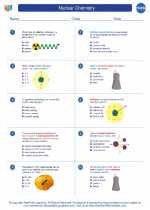Homozygous Study Guide
Homozygous: In genetics, the term "homozygous" refers to an individual having two identical alleles for a particular gene. Alleles are different versions of the same gene that can produce different traits.
Understanding Homozygous Genotypes
There are two types of homozygous genotypes:
- Homozygous dominant (AA): Both alleles for a specific gene are the same and dominant, resulting in the expression of the dominant trait.
- Homozygous recessive (aa): Both alleles for a specific gene are the same and recessive, resulting in the expression of the recessive trait.
Mendelian Inheritance and Homozygous Traits
According to Mendel's laws of inheritance, if an individual is homozygous for a particular trait, all of their offspring will also inherit the same alleles for that trait.
Examples of Homozygous Traits
Some examples of homozygous traits include:
- Eye color: If an individual has two alleles for brown eyes (BB) or two alleles for blue eyes (bb), they are homozygous for that trait.
- Blood type: In the ABO blood group system, individuals can be homozygous for blood type A (AA), B (BB), AB (AB), or O (OO).
Study Tips for Understanding Homozygous
Here are some study tips to help you understand the concept of homozygous:
- Practice Punnett squares to understand how homozygous genotypes influence the inheritance of traits.
- Use flashcards to memorize the different homozygous genotypes and their corresponding traits.
- Explore online resources and videos that explain the concept of homozygous in genetics.
- Engage in discussions with classmates or teachers to clarify any doubts about homozygous traits and inheritance.
By understanding the concept of homozygous and practicing related problems, you can master this important aspect of genetics and inheritance.
.◂Chemistry Worksheets and Study Guides High School. Nuclear Chemistry
Worksheet/Answer key Nuclear Chemistry
Nuclear Chemistry  Worksheet/Answer key
Worksheet/Answer key Nuclear Chemistry
Nuclear Chemistry  Worksheet/Answer key
Worksheet/Answer key Nuclear Chemistry
Nuclear Chemistry 

 Worksheet/Answer key
Worksheet/Answer key
 Worksheet/Answer key
Worksheet/Answer key

The resources above cover the following skills:
Concepts of Physical Science (SB1, SB2, SB3, SB4)
The student demonstrates an understanding of the interactions between matter and energy and the effects of these interactions on systems by researching applications of nuclear reactions in which a small amount of matter is converted directly into a huge amount of energy (i.e., E=MC2). (L)